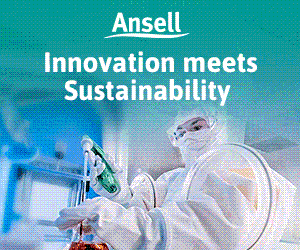Recent laboratory blunders involving smallpox, anthrax and bird flu in some top US labs provide a timely reminder that we are working with (and even creating) deadly materials that would be beyond our control were they ever to be released into the environment by a more serious accident.
In response to the potentially fatal blunders, the US Centers for Disease Control and Prevention (CDC) announced the closure of two labs and placed a temporary ban on transportation of dangerous pathogens for high-security labs.
US figures suggest the frequency of such accidents has increased with the growth in research labs studying regulated pathogens across the country. The US government does not even know the exact number of BSL-3 labs in the US, nor is there currently a regulatory body responsible for oversight of this wide-ranging research that covers both human and animal pathogens.
History has shown that some pathogens, having once established transmission in humans, have infected a quarter or more of the world’s population within a couple of years. The problem would be equally serious were the pathogens to target a main food source – cattle, poultry or crops.
Perhaps we should monitor biosafety with the same rigour as radioactivity and not just focus on lab practice. The 2011 earthquake that hit Japan’s Fukushima Daiichi Nuclear Power Plant was a wake-up call to the fact that, however good the building, we can’t always control our environment.
CDC Director Thomas Frieden argues that the latest findings are a sign that the world needs to minimise the number of labs that deal with dangerous pathogens. Meanwhile, an independent group of researchers and other public health experts have formed the Cambridge Working Group to push for more careful assessment of experiments involving lab-modified pathogens, along with better tools to weigh the risks and benefits of the work.
While such proposals should be considered, we must also remember that natural disasters, war and human fallibility can all conspire against the best policies and practices. Plans need to be in place for such events, however small or large the lab.




